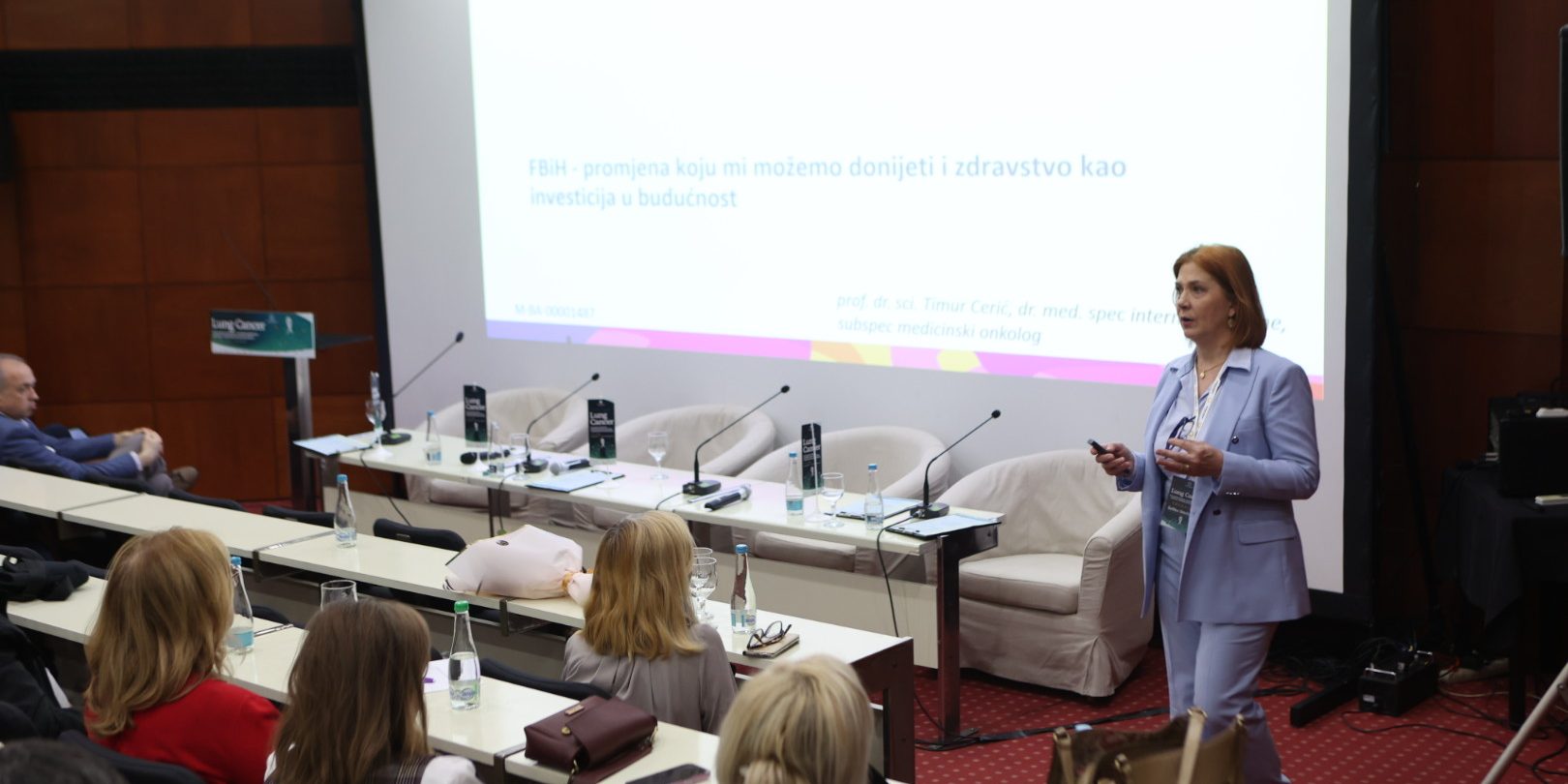The Association of Oncologists in Bosnia and Herzegovina, in collaboration with the Clinic for Oncology and Radiotherapy of the University Clinical Center Tuzla, organized a two-day professional symposium in Tuzla titled “Masterclass on Lung Cancer: Modern Therapies and the Multidisciplinary Approach to Treatment.”
This landmark event marks the first thematic symposium in Bosnia and Herzegovina dedicated exclusively to pulmonary oncology—highlighting its significance for both the medical community and the broader public health landscape of the country.
Over the course of two days, leading experts from Bosnia and Herzegovina and the wider region shared insights, experiences, and the latest advances in the diagnosis and treatment of lung cancer—one of the most lethal malignancies worldwide.
The symposium placed a strong emphasis on innovative therapies, particularly the development of new molecules and targeted treatments that are significantly improving survival rates for patients with metastatic lung cancer.
Prof. Dr. Šefika Umihanić, specialist in pneumophthisiology and subspecialist in medical oncology, and acting head of the Clinic for Oncology and Radiotherapy at the University Clinical Center Tuzla, underscored the importance of organizing such a meeting in Tuzla and within Bosnia and Herzegovina. She highlighted that this event not only promotes knowledge exchange but also strengthens the role of local institutions in advancing oncology care and research: “The Lung Cancer Masterclass held in Tuzla, organized by the Clinic for Oncology and Radiotherapy and the Association of Oncologists in Bosnia and Herzegovina, represents an extremely important step forward for our healthcare system. This is a thematic meeting that has not been organized in Bosnia and Herzegovina so far and is extremely important considering the frequency and severity of lung cancer, but also all the risk factors to which we are exposed on a daily basis. At this symposium, special emphasis was placed on innovative therapeutic options – new molecules and targeted therapies that lead to multi-year survival in patients with targetable mutations, even in metastatic stages of the disease. Unfortunately, we are still not able to provide access to these modern therapies to all patients in the Federation of BiH. We are also witnessing positive experiences in Sarajevo, namely in the Sarajevo Canton, which, through their cantonal health insurance institute, have enabled the treatment of their patients who require modern and potent therapy. I hope that we will soon take that first step in solving this problem in our canton as well.”







